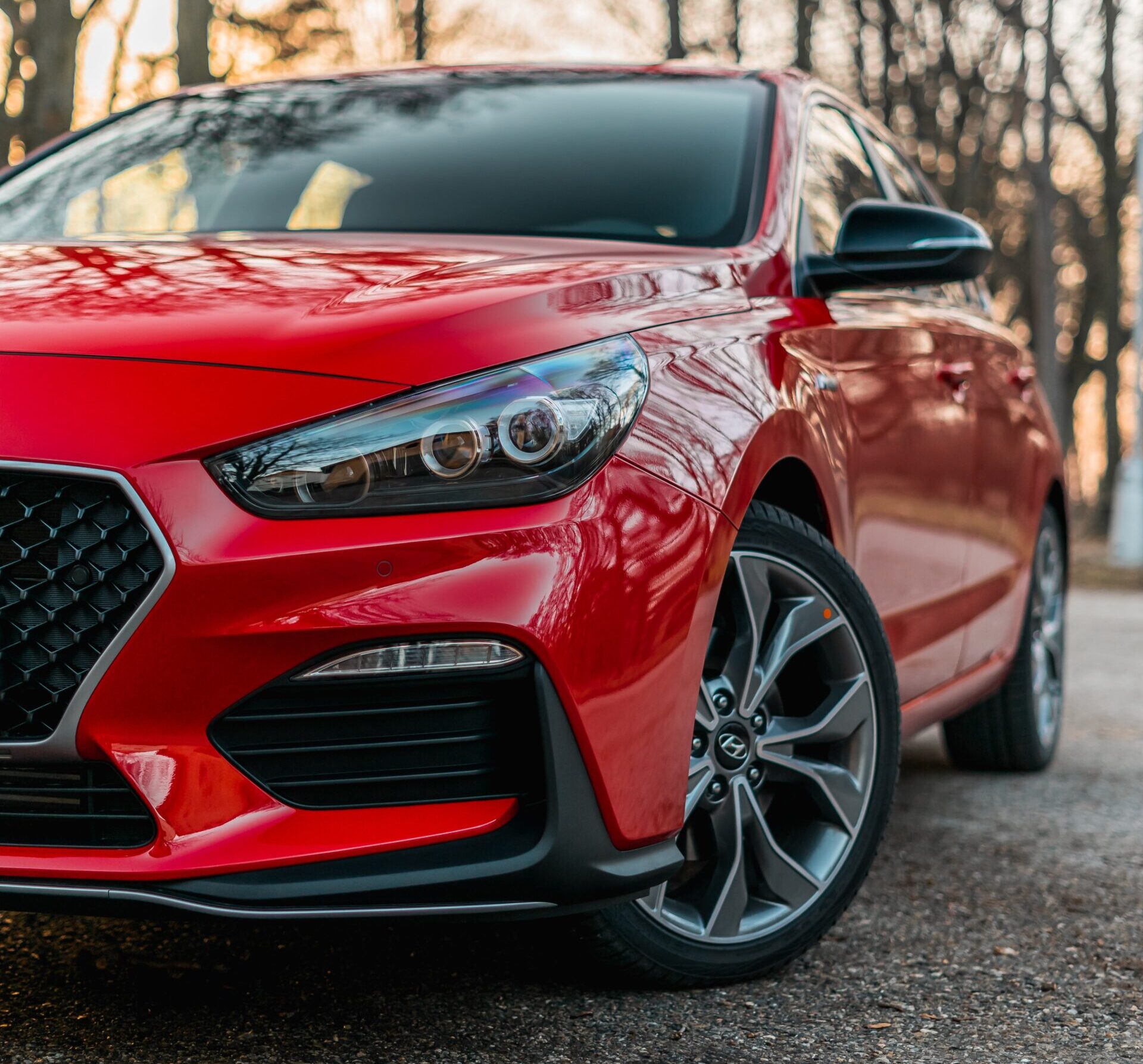Support our educational content for free when you purchase through links on our site. Learn more
[2023] Pros and Cons of Leasing a Car vs Buying: Which Option is Right for You?
Leasing or buying a car is a decision that many people face when it comes to getting behind the wheel of a new vehicle. Each option has its own set of pros and cons, and it's important to weigh them carefully before making a choice. In this comprehensive guide, our team at Car Leases™ will delve into the advantages and disadvantages of leasing a car versus buying one. We'll provide expert advice to help you make an informed decision that aligns with your lifestyle, budget, and preferences.
Table of Contents
- Quick Answer
- Lease or Buy a Car: What’s the Difference?
- Pros and Cons of Leasing
- Pros and Cons of Buying
- Leasing vs. Buying Summary
- What are the advantages of leasing?
- What are the disadvantages of leasing?
- What’s the difference between buying and leasing a car?
- The Bottom Line
- FAQ
- Quick Tips and Facts
- Useful Links
- Reference Links
Quick Answer
Leasing a car offers the benefits of lower monthly payments and the ability to drive a new vehicle every few years. On the other hand, buying a car provides the advantage of ownership, allowing you to modify or sell the car at any time. Consider your financial situation, lifestyle, and preferences to determine which option is right for you. Check prices on top leasing and buying options.
Lease or Buy a Car: What’s the Difference?
Before we dive into the pros and cons of leasing and buying, let's first understand the fundamental difference between the two options.
- Leasing a car: When you lease a car, you essentially rent it for a specific period, typically 2-4 years, and a predetermined number of miles. You make monthly payments to the leasing company and return the car at the end of the lease term.
- Buying a car: When you buy a car, you are the owner. You may finance the purchase through a loan or pay for it in full. Once you've paid off the loan, the car is yours to keep or sell.
Now, let's explore the pros and cons of both options in detail.
Pros and Cons of Leasing
Leasing a car can be an appealing option for many individuals. However, it's important to consider the following pros and cons before making a decision:
Pros of Leasing
- Lower monthly payments: Lease payments are typically lower than loan payments for the same vehicle. This allows you to drive a more expensive car for the same budget.
- Driving a new car: Leasing allows you to drive a new vehicle every few years, providing access to the latest features and technologies. This can be especially enticing for technology enthusiasts.
- Reduced maintenance costs: In most cases, a leased car is still covered by the manufacturer's warranty, reducing the cost of unexpected repairs.
- Minimal upfront costs: Leasing often requires a lower down payment compared to buying, making it more accessible to individuals with limited funds.
- No hassle of selling: At the end of the lease term, you simply return the car to the leasing company without the hassle of selling it yourself.
Cons of Leasing
- No ownership: When you lease a car, you don't own it. This means you have no equity in the vehicle and are essentially renting it for a set period.
- Mileage restrictions: Leasing contracts typically have mileage limits. Exceeding these limits can result in additional fees, which can be a concern for individuals with long commutes or frequent road trips.
- Excessive wear and tear charges: Lease agreements often have strict guidelines regarding the condition of the vehicle upon return. Excessive wear and tear may result in additional charges.
- Limited customization: As a lessee, you may have restrictions on modifying the leased vehicle to fit your preferences.
- Long-term costs: While leasing may provide lower monthly payments, over the long term, the cumulative cost of multiple leases can be higher than purchasing a car.
Pros and Cons of Buying
Buying a car, whether through financing or paying in cash, comes with its own advantages and disadvantages. Let's take a closer look:
Pros of Buying
- Ownership: Buying a car gives you the advantage of ownership. You can modify or sell the vehicle at any time, providing you with more flexibility.
- No mileage restrictions: When you own a car, you don't have to worry about exceeding mileage limits. You can drive as much as you want without incurring additional fees.
- Ability to build equity: As you make loan payments, you build equity in the car. Once the loan is paid off, you own the vehicle outright.
- Freedom to customize: As the owner, you have the freedom to modify the car to your liking. Whether it's upgrading the audio system or adding personalized touches, the choice is yours.
- Potentially lower long-term costs: While buying a car may involve higher monthly payments, over the long term, the cumulative cost may be lower than multiple lease payments.
Cons of Buying
- Higher upfront costs: Buying a car often requires a larger down payment compared to leasing. This can be a barrier for individuals with limited funds.
- Responsible for maintenance and repairs: As the owner, you are responsible for all maintenance and repair costs once the warranty expires.
- Depreciation: Cars depreciate over time, and the value of your investment decreases. Selling a car can result in a loss of money, especially in the early years.
- Potentially outdated features: Since you won't be driving a brand new car every few years, you may miss out on the latest features and technologies.
Leasing vs. Buying Summary
To summarize the key differences between leasing and buying a car, refer to the table below:
| Aspect | Leasing | Buying |
|---|---|---|
| Ownership | You don't own the car. | You own the car. |
| Monthly Payments | Lower monthly payments. | Potentially higher monthly payments. |
| Mileage Restrictions | Typically have mileage limits. | No mileage limits. |
| Customization | Limited flexibility to customize. | Freedom to modify the vehicle. |
| Maintenance Costs | Reduced maintenance costs during lease term. | Responsible for all maintenance costs. |
What are the advantages of leasing?
Leasing offers several advantages that may make it an attractive option for certain individuals. Consider the following benefits:
- Lower monthly payments: Lease agreements often have lower monthly payments compared to financing a purchase, allowing you to drive a more expensive car for the same budget.
- Ability to drive a new car: Leasing allows you to drive a new vehicle every few years, providing access to the latest features and technologies.
- Reduced maintenance costs: A leased car is typically covered by the manufacturer's warranty during the lease term, minimizing unexpected repair expenses.
- Minimal upfront costs: Leasing often requires a lower down payment, making it more accessible to individuals with limited funds.
- No hassle of selling: At the end of the lease term, you can simply return the car to the leasing company without going through the process of selling it yourself.
What are the disadvantages of leasing?
While leasing has its advantages, it's important to consider the disadvantages as well. Here are some potential drawbacks:
- No ownership: When you lease a car, you don't own it. This means you have no equity in the vehicle and are essentially renting it for a set period.
- Mileage restrictions: Leasing contracts typically come with mileage limits. Exceeding these limits can result in additional fees, which can be a concern for individuals who drive frequently or have long commutes.
- Excessive wear and tear charges: Lease agreements often have strict guidelines regarding the condition of the vehicle upon return. Excessive wear and tear may result in additional charges.
- Limited customization: As a lessee, you may have restrictions on modifying the leased vehicle to fit your preferences.
- Long-term costs: While leasing may provide lower monthly payments, over the long term, the cumulative cost of multiple leases can be higher than purchasing a car.
What’s the difference between buying and leasing a car?
The main difference between buying and leasing a car lies in ownership. When you buy a car, you own it and have the freedom to modify or sell it at any time. On the other hand, when you lease a car, you don't own it and are essentially renting it for a set period. Leasing often comes with lower monthly payments, while buying offers the advantage of equity and no mileage restrictions. Consider your financial situation, lifestyle, and preferences when deciding which option is right for you.
The Bottom Line
Choosing between leasing and buying a car depends on your unique circumstances and priorities. Leasing offers the benefits of lower monthly payments, the ability to drive a new vehicle every few years, and reduced maintenance costs. However, you won't own the car and may face mileage restrictions. Buying a car provides the advantage of ownership and no mileage limits, but it requires higher upfront costs and responsibility for maintenance and repairs.
Assess your financial situation, driving habits, and long-term goals to determine which option aligns best with your needs. Consider consulting with a reputable dealership or financial advisor to get personalized guidance.
FAQ
What are the disadvantages of leasing a car?
Leasing a car has its drawbacks, including:
- No ownership or equity in the vehicle.
- Mileage restrictions and fees for exceeding them.
- Potential charges for excessive wear and tear.
- Limited customization options.
- Higher long-term costs compared to buying.
Is it financially smarter to buy or lease a car?
Whether it's financially smarter to buy or lease a car depends on your individual circumstances. Leasing may provide lower monthly payments, but over the long term, the cumulative cost can be higher than buying. Buying a car gives you ownership and the potential for equity, but it often requires higher upfront costs. Consider your budget, driving habits, and future plans to make an informed decision.
What are 3 advantages of leasing a car?
Three advantages of leasing a car are:
- Lower monthly payments compared to buying.
- Access to a new vehicle with the latest features and technologies every few years.
- Reduced maintenance costs during the lease term due to the manufacturer's warranty coverage.
How much is a lease on a $45,000 car?
The cost of a lease on a $45,000 car can vary depending on factors such as the lease term, down payment, mileage allowance, and interest rate. As a general estimate, expect monthly lease payments to be around 1-3% of the vehicle's value. For a $45,000 car, monthly lease payments could range from approximately $450 to $1,350. Keep in mind that these figures are approximate and can vary.
Quick Tips and Facts
- Leasing a car offers lower monthly payments and the ability to drive a new vehicle every few years.
- Buying a car provides ownership and the freedom to modify or sell the vehicle at any time.
- Consider your financial situation, driving habits, and long-term goals when deciding between leasing and buying.
- Research dealership offers to find the best lease or financing terms that suit your needs.
- Don't forget to consider the costs of insurance, maintenance, and depreciation in your decision-making process.




